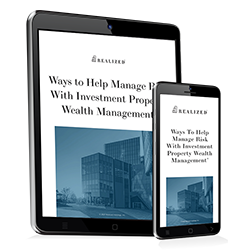
Investing is a bit like betting on sports -- it’s a game of probabilities. Positive outcomes are never guaranteed, even in times of economic boom and national prosperity.
Past performance also means little when it comes to investing in real estate. Rising property values and rental rates aren’t a guarantee that investors will realize these trends after committing their money to investment properties. This erroneous thinking is known as the Gambler’s Fallacy, a theory that states past occurrence has no bearing on present circumstances. Your odds of hitting red on roulette after 10 or even 20 consecutive black spins are still 50 percent.
In other words, just because commercial and residential property values have seen tremendous appreciation in many markets since the Great Recession, there’s no guarantee they will continue this upward trend. That’s why it’s important for investors to employ strategies that can help them manage risk with their investments, as well as be duly compensated for the level of risk they are willing to accept with their investment assets.
Managing investment risk can potentially increase the value of your investment wagers, regardless of whether you’re prone to picking favorites or rooting for the underdogs.
Strategies to Help Manage Investment Risk
If investing is a game of probabilities, then sophisticated investing is about finding the probabilities of positive financial outcomes. One way to accomplish this goal is to manage the risk from your investment decisions in an attempt to skew the odds in your favor. The end result of this risk management could mean realizing modest rather than significant financial gain, or at the least the preservation of your original investment capital.
There are many ways you can try to manage risk with your investments. Diversification and asset allocation are common portfolio management strategies that both accredited and retail investors often use. These tactics can help investors attempt to manage risk by avoiding concentrated positions and spreading investment funds across a variety of assets, such as public stocks, bonds, and a range of alternative investments that are uncorrelated with market performance. Alternative assets such as real estate can provide important portfolio stability in a bull market; likewise, a mix of traditional financial instruments can potentially lead to increased returns that could offset the cyclical downturns that negatively affect commercial and residential real estate property values.
Investment horizon, or the length of time you are willing to commit funds to a particular financial instrument, also can have a big impact on risk. Investments with a horizon of five to 10 years or more typically are less volatile than short-term investments because they generally can withstand negative fluctuations and recover any loss of value over the long-term.
The Bottom Line
There’s a positive correlation between risk and return -- assumption of greater risk offers the potential for higher returns. Following that line of thought to its logical conclusion, however, it becomes clear that increased risk also can lead to larger losses and greater financial distress.
One way to get an edge on risk is to create a risk management plan. This plan can help you identify and quantify the primary risk factors that could negatively impact your investments with the goal of creating a response plan to manage these risk factors.
Investors who are willing to roll the dice on investments always face risk; it’s an inevitable aspect of the game. You can increase your chances of rolling a 7 or 11 by understanding your tolerance for risk and making investment decisions that reward you for the level of risk you are willing to accept.



